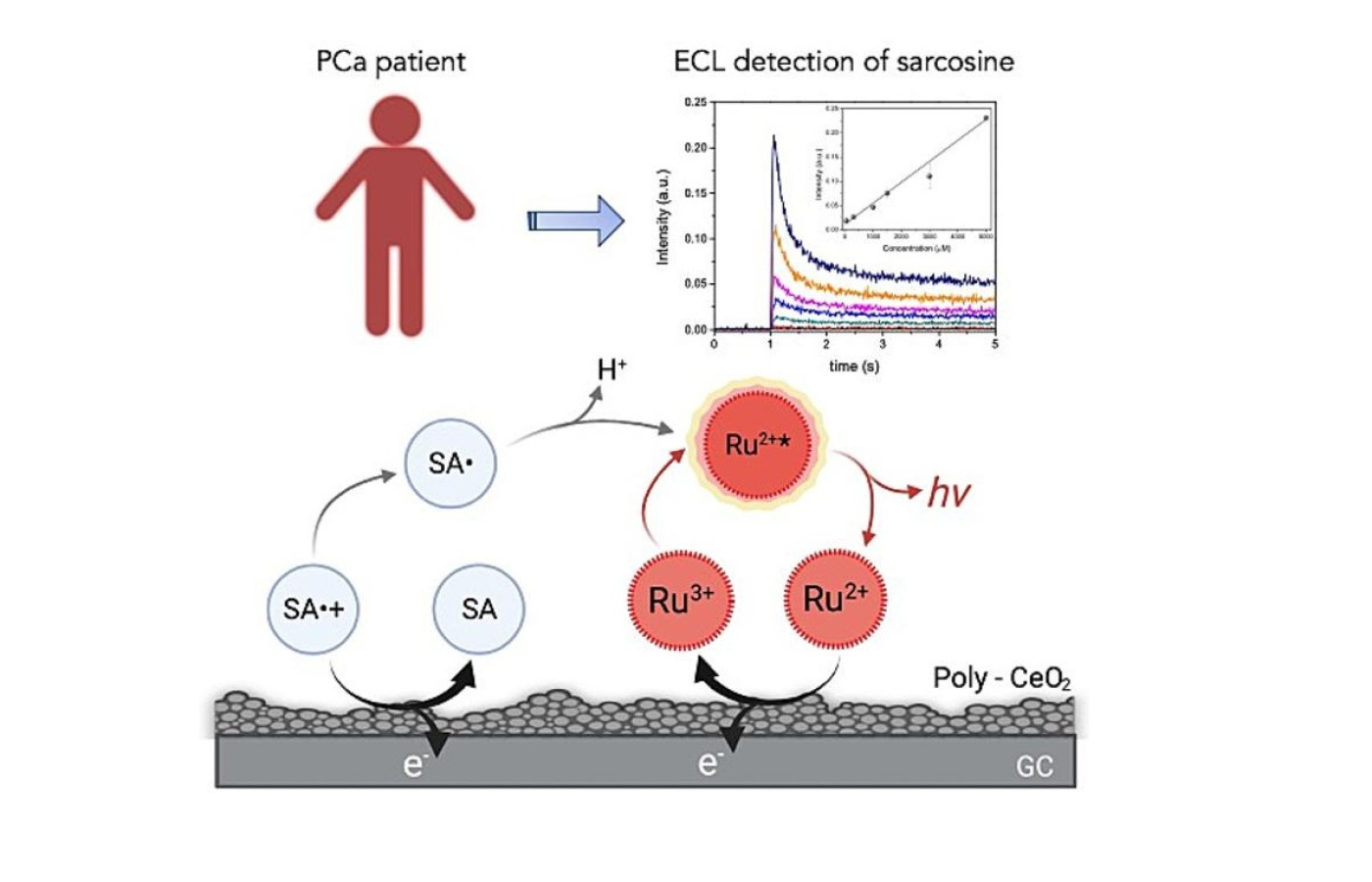
Prostate cancer (PCa) is widely spread in male population, especially over 65 years. Currently used medical methods of PCa diagnosis often lead to false-positive results thus new non-invasive methods for PCa detection, such as urine tests for cancer metabolites, are actively studied. Herein, nanostructured polycrystalline cerium oxide thin films (CeO2/GC) prepared by magnetron sputtering on a glassy carbon substrate are tested for electrochemiluminescent (ECL) detection of sarcosine exploiting the oxidative-reduction mechanism using Ru(bpy)32+ as luminophore. Non-functionalized CeO2/GC electrodes revealed a higher ECL signal stability compared to bare glassy carbon electrodes. Moreover, CeO2/GC electrodes were successfully applied for rapid and sensitive detection of different sarcosine concentrations ranging from 50 to 5000 µM. These results open new possibilities for developing sensing platforms for sarcosine detection based on the CeO2/GC working electrode via surface modification and functionalization, aiming to further investigate and improve their sensitivity and selectivity.
More information can be found here: https://www.sciencedirect.com/science/article/pii/S0026265X22011900.
© 2021 Matematicko-fyzikální fakulta Univerzity Karlovy.
Všechna práva vyhrazena. | Cookies